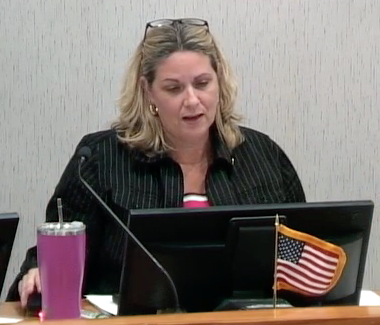Submitted by Suanne Z. Thamm
Reporter – News Analyst
August 7, 2019 – 11:25 a.m.
At their August 6, 2019 Regular Meeting the Fernandina Beach City Commission (FBCC) established a Charter Review Committee (CRC) with seven members, each of whom was selected by a City Commissioner or a Charter Officer.
- Bradley Bean (Kreger)
- Richard Clark (Best)
- Margaret Davis (Ross)
- Arlene Filkoff (Miller)
- Jon Lasserre (Martin)
- Kevin McCarthy (Chapman)
- Chuck Oliva (Lednovich)
Because she will sit with the CRC as staff and advise them City Attorney Tammi Bach, the third Charter Officer, did not appoint another member. Bach will convene the first meeting, where the members will elect a chair and vice chair. The committee will deliberate over 9 months and produce a report no later than June 30, 2020.
Any recommended changes will then be reviewed by the FBCC prior to seeking voter approval for implementation, if needed.
The Charter is a relatively short document and readily available for public review or consultation by clicking here. The last Charter Review Committee met in 2007 and did an extensive clean up of obsolete sections and language. As a result of their recommendations, voter referendums were held that resulted in changed commission terms from 3 to 4 years and 2-year election cycles to coincide with state elections.

Bach explained the purpose of a city charter, including what is appropriate for inclusion and what is not. She said, “The municipal charter establishes the particular town and includes its boundaries. The charter also includes the municipality’s form of government, elected and administrative officials and municipal elections. It outlines the handling of public services and deals with financial matters, such as the power to tax and to incur debt and bond. The charter contains information regarding the city’s boards, commissions and committees. It addresses charter amendments and other issues dealing with how a municipality operates.”
“The document does not deal with development in our city, how we manage development. That’s done with the Comprehensive Plan and the Land Development Code. But the charter does include things about how we manage city property: we can’t sell or lease for long term recreational property without a referendum.” She referenced the FBCC-approved referendum which if passed in November 2020 would also include restrictions on Conservation land.
She emphasized that land use proscriptions are not appropriate for this document, but should be addressed in the city’s Comprehensive Plan. “This is not the document in which we include statements about how much we love our environment. That’s what we have already done in our Comprehensive Plan. There’s nothing that says you can’t do that, but that’s not the purpose of a Municipal Charter.”
